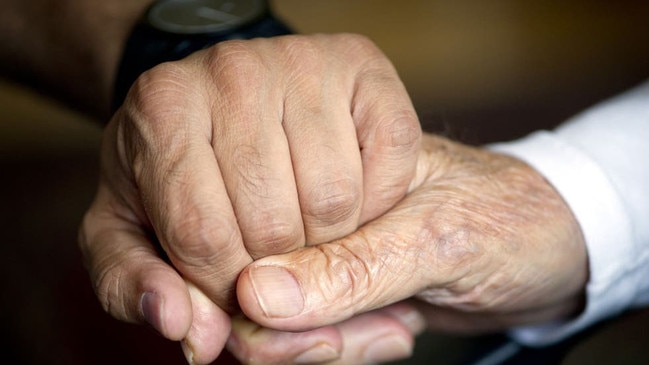Aged care providers sound alarm over Labor tight reform timeline
Nearly 70 per cent of aged care providers are concerned Labor’s $5.6bn reforms to the sector are being rushed, damning new research reveals.

Nearly 70 per cent of aged care providers are concerned Labor’s $5.6bn reforms to the sector are being rushed, while more than 80 per cent believe the government’s aged care package will put greater strain on the industry, damning new research reveals.
The Aged and Community Care Providers Association’s annual state of the sector report also says a quarter of small providers are not confident in their ability to continue providing aged care services and less than 40 per cent believe they will be able to recruit the staff needed to meet the increased care requirements.
Of the nearly 200 organisations that participated in the survey, about half believe Australia’s aged care system is “on the right track”, with 70 per cent expressing concern that the nation is not ready to support a growing ageing population.
Anthony Albanese last month unveiled a package of reforms to get the aged care industry back on sustainable footing, which was focused on delivering more support to elderly Australians in their own homes while raising everyday living costs for part pensioners and self-funded retirees.
ACCPA chief executive Tom Symondson said while about half of the sector was on-board with the reforms, most were concerned about the government’s aim of having the new Aged Care Act come into force from mid-July next year.
“Providers fully support well designed reform, but that reform must be at a manageable pace and not exacerbate already existing problems,” he said.

Following weeks of protracted negotiations, the Coalition last month agreed that it would not change Labor’s proposed financial sustainability framework – which will see wealthier Australians pay more for non-clinical care – but still harbours other concerns about the broader legislation.
Opposition aged care spokeswoman Anne Ruston said there were still a number of “rules” and subordinate legislation that the government was yet to release.
Other peak bodies operating in the aged care sector also raised concern with the lack of clarity over how the new act would work.
In its submission to the parliamentary committee investigating the government’s bill, Osteopathy Australia said the absence of detail was putting strain on the sector.
“We are deeply concerned about the lack of certainty to introduce subordinate legislation into the sector,” the submission says. “A lack of certainty leaves an already thin and burnt-out workforce in a vulnerable position that will lead to a mass exodus of vital health professionals working in the aged care sector, such as osteopaths.”
Mr Symondson said providers were already facing worker shortages, with just 36 per cent confident that they would be able to recruit enough staff to meet their increased care time requirements.
“Current migration settings aren’t the answer, with 64 per cent unable to access the workers required under current arrangements,” he said.
ACCPA’s survey also revealed 97 per cent of providers are concerned about increasing costs, with 50 per cent of residential providers continuing to lose money and the margins of home care providers crashing to $1.80 per client per day in the first half of 2023-24, from approximately $3.20 in 2022-23.
“Australia’s population is ageing and we need to be ready,” Mr Symondson said.
“It’s critical that funding is sufficient to deliver care and to attract investment so we can build for the future.”








To join the conversation, please log in. Don't have an account? Register
Join the conversation, you are commenting as Logout